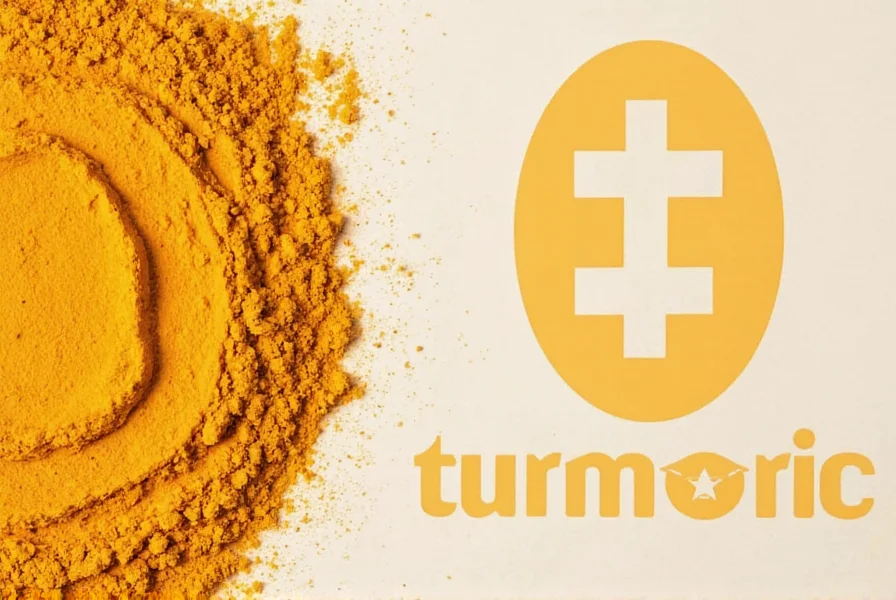Based on current scientific evidence, turmeric (specifically its active compound curcumin) may offer modest support for weight management when combined with a healthy diet and exercise, but it is not a standalone weight loss solution. Multiple clinical studies show small reductions in body weight, BMI, and waist circumference, typically in the range of 1-3 pounds over several months. These effects appear to stem from curcumin's anti-inflammatory properties and potential influence on fat metabolism. However, turmeric alone will not produce significant weight loss without comprehensive lifestyle changes.
When exploring natural approaches to weight management, many people wonder does turmeric help with weight loss as claimed by various wellness sources. Let's examine what scientific research actually reveals about turmeric's role in weight control, separating evidence from hype.
The Science Behind Turmeric and Weight Management
Turmeric, a vibrant yellow spice commonly used in Indian cuisine, contains curcumin as its primary active compound. Curcumin has been extensively studied for its anti-inflammatory and antioxidant properties. Research suggests these properties may indirectly support weight management through several biological pathways.
A comprehensive 2022 meta-analysis published in Nutrition Reviews examined 12 clinical trials involving over 800 participants. The analysis concluded that curcumin supplementation resulted in statistically significant but modest reductions in body weight, BMI, and waist circumference compared to placebo groups. The average weight difference was approximately 1.5-2.5 pounds after 8-12 weeks of supplementation.

How Curcumin Might Influence Weight
Researchers have identified several potential mechanisms through which curcumin may support weight management:
- Anti-inflammatory effects: Chronic inflammation is associated with obesity and metabolic disorders. Curcumin's potent anti-inflammatory properties may help improve metabolic function.
- Adipogenesis regulation: Some studies suggest curcumin may inhibit the formation of new fat cells and promote apoptosis (cell death) in existing fat cells.
- Improved insulin sensitivity: Better insulin function can help regulate blood sugar and reduce fat storage.
- Modulation of gut microbiota: Emerging research indicates curcumin may positively influence gut bacteria composition, which plays a role in metabolism.
Limitations of Current Research
While promising, the research on turmeric for weight loss has significant limitations that consumers should understand:
| Research Limitation | Implication for Weight Loss |
|---|---|
| Small sample sizes | Most studies involve fewer than 100 participants, limiting statistical power |
| Short duration | Majority of trials last 8-12 weeks, insufficient to assess long-term effects |
| Modest results | Average weight loss is typically 1-3 pounds, not clinically significant alone |
| Combination approaches | Studies often combine curcumin with diet/exercise, making isolated effects difficult to determine |
These limitations mean we should view turmeric as a potential complementary approach rather than a primary weight loss strategy. The question can turmeric help with weight loss deserves a nuanced answer: it may provide modest support when integrated into a comprehensive weight management plan, but expectations should be realistic.
Practical Considerations for Using Turmeric
If you're considering adding turmeric to your weight management routine, these evidence-based recommendations can help you use it effectively:
- Dosage: Most studies showing benefits used 500-2,000 mg of curcumin daily, often in divided doses.
- Bioavailability: Curcumin has poor absorption. Look for supplements containing piperine (from black pepper) or formulated for enhanced absorption.
- Timing: Taking turmeric with meals containing healthy fats may improve absorption.
- Realistic expectations: Don't expect dramatic results—view it as one component of a broader strategy.
- Safety: Generally well-tolerated, but may interact with blood thinners and diabetes medications.

How Turmeric Compares to Proven Weight Loss Methods
When evaluating scientific evidence turmeric weight management claims, it's essential to compare its effects to established weight loss approaches:
- Dietary changes: Calorie-controlled diets typically produce 1-2 pounds of weight loss per week—significantly more than turmeric alone.
- Exercise: Regular physical activity contributes to sustainable weight loss and metabolic health improvements.
- Behavioral interventions: Cognitive approaches addressing eating habits often yield better long-term results.
- Medical treatments: FDA-approved weight loss medications can produce 5-15% body weight reduction.
Turmeric's potential benefits are modest compared to these approaches. The most effective strategy combines evidence-based methods with complementary approaches like turmeric for synergistic effects.
Important Safety Considerations
While turmeric is generally safe as a culinary spice, higher doses used in supplements require caution:
- May interact with blood-thinning medications like warfarin
- Potential interactions with diabetes medications requiring blood sugar monitoring
- High doses may cause digestive discomfort in some individuals
- Pregnant women should consult healthcare providers before using supplements
Always discuss new supplements with your healthcare provider, especially if you have underlying health conditions or take medications. This is particularly important when exploring how to use turmeric for weight loss as part of your health regimen.
Conclusion: Setting Realistic Expectations
The evidence regarding can turmeric help with weight loss suggests it may provide modest support as part of a comprehensive approach, but it's not a magic solution. Research indicates small improvements in weight-related metrics when curcumin is combined with healthy lifestyle changes. For meaningful weight loss, focus first on evidence-based strategies like balanced nutrition, regular physical activity, and behavioral modifications. Turmeric can potentially complement these approaches, but should not replace them. As with any supplement, manage expectations and consult healthcare professionals to ensure safe and appropriate use.











 浙公网安备
33010002000092号
浙公网安备
33010002000092号 浙B2-20120091-4
浙B2-20120091-4